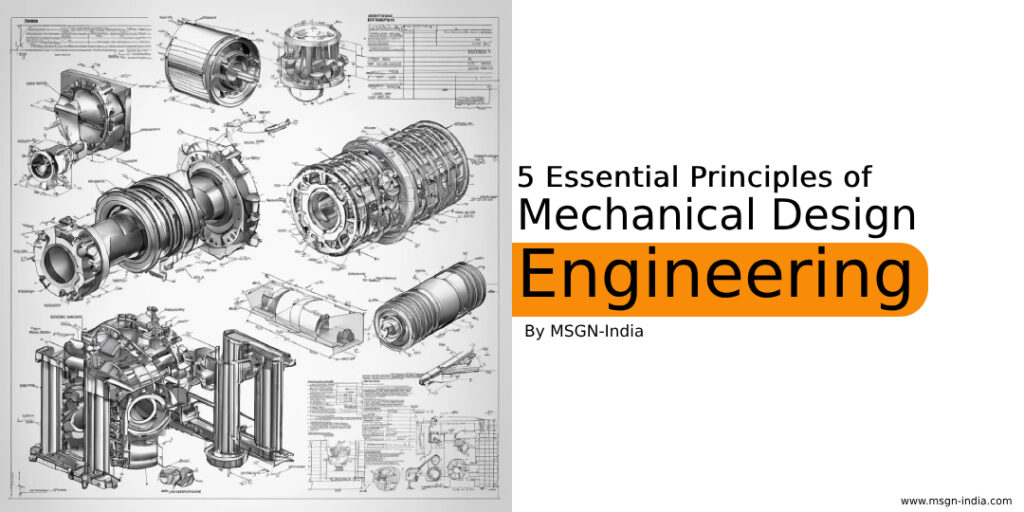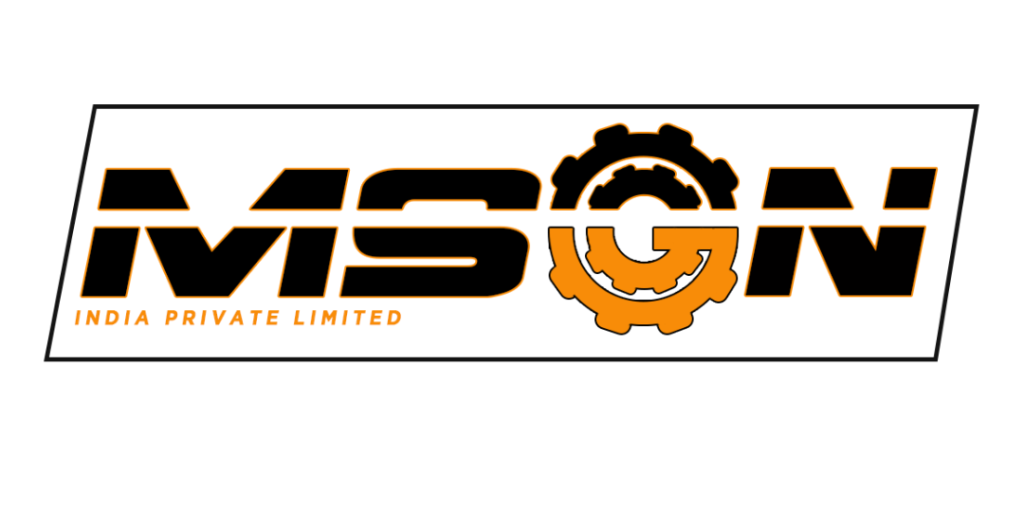
Understanding 5 Essential Principles of Mechanical Design Engineering to solve your complexity.
In the world of mechanical design engineering, these 5 essential principles of design engineering in mechanical stream are really important. So, Success often hinges on a deep understanding of fundamental principles. Whether you’re designing intricate machinery or developing innovative products, adhering to these principles is crucial for achieving optimal results. In this blog post, we’ll explore five essential principles that form the backbone of mechanical design engineering.
Here are 5 Essential Principles Of Mechanical Design Engineering.
| Sr. No | Table of Content |
| 1 | Materials Selection |
| 2 | Design for Functionality |
| 3 | Optimization for Manufacturing ability |
| 4 | Integration of Safety and Reliability |
| 5 | Continuous Improvement and Innovation |
1: Materials Selection:
In the realm of mechanical design engineering, the process of materials selection is paramount to the success and functionality of any project. From structural integrity to thermal conductivity, and the choice of materials directly impacts the performance, durability, and manufacturing ability of mechanical components and systems.
Because, The choice of materials plays a significant role in the success of any mechanical design project. Engineers must carefully consider factors such as strength, durability, thermal conductivity, and cost when selecting materials for various components. So, Understanding the properties of different materials and their suitability for specific applications is essential for making informed design decisions.
Let’s delve into the intricacies of materials selection and explore key considerations and best practices for mechanical design engineers.
- Understanding Material Properties
- Performance Requirements and constraints
- Manufacturing Considerations
- Life-cycle Analysis And Sustainability
- Material Selection Tools And Resources
2: Design for Functionality:
At its core, mechanical design engineering is about creating products and systems that function effectively. Engineers must prioritize functionality throughout the design process, ensuring that every component serves its intended purpose efficiently. By focusing on functionality, designers can minimize complexity, optimize performance, and enhance user experience.designing for functionality is a fundamental principle that drives the creation of effective and efficient mechanical systems. From complex machinery to innovative products, prioritizing functionality ensures that every component serves its intended purpose effectively.
- Clarifying Design Objectives
- Simplicity And Minimalism
- User-Centered Design
- Integration Of Advanced Technologies
- Durability And Reliability
- Iterative Design And Testing
3: Optimization for Manufacturing ability:
Designing products that are easy and cost-effective to manufacture is essential for success in mechanical design engineering. Engineers must consider factors such as machining, assembly, and material waste during the design phase to optimize manufacturing ability. By designing with manufacturing in mind, engineers can streamline production processes, reduce lead times, and minimize production costs.
4: Integration of Safety and Reliability:
Safety and reliability are paramount in mechanical design engineering, particularly in industries such as automotive, aerospace, and medical devices. Engineers must incorporate safety features and redundancies into their designs to mitigate risks and ensure the reliability of mechanical systems. By prioritizing safety and reliability, engineers can build trust with end-users and stakeholders while minimizing the potential for costly failures.
5: Continuous Improvement and Innovation:
The field of mechanical design engineering is constantly evolving, driven by advancements in technology and changing customer needs. Engineers must embrace a culture of continuous improvement and innovation, seeking out opportunities to enhance existing designs and develop innovative solutions to emerging challenges. By staying abreast of industry trends and leveraging new technologies, engineers can maintain a competitive edge and drive innovation in mechanical design.
In Conclusion
the principles outlined above form the foundation of successful mechanical design engineering projects. By adhering to these principles and integrating them into their design processes, engineers can create products and systems that are functional, manufacturable, safe, reliable, and innovative. As the field continues to evolve, embracing these principles will be essential for driving progress and achieving success in mechanical design engineering.
